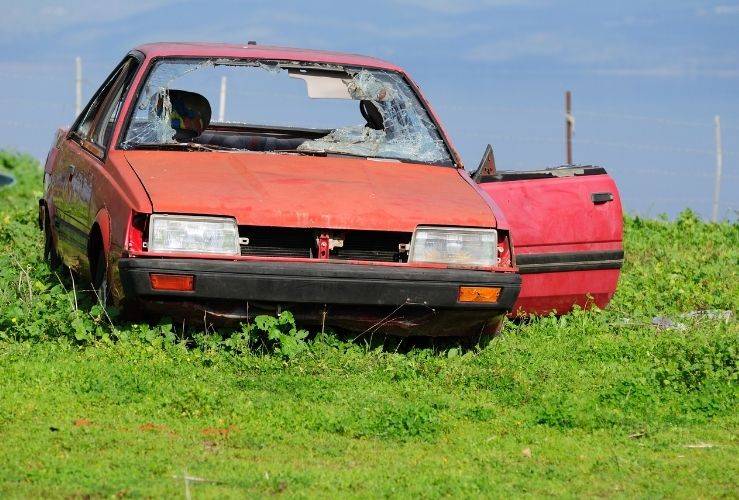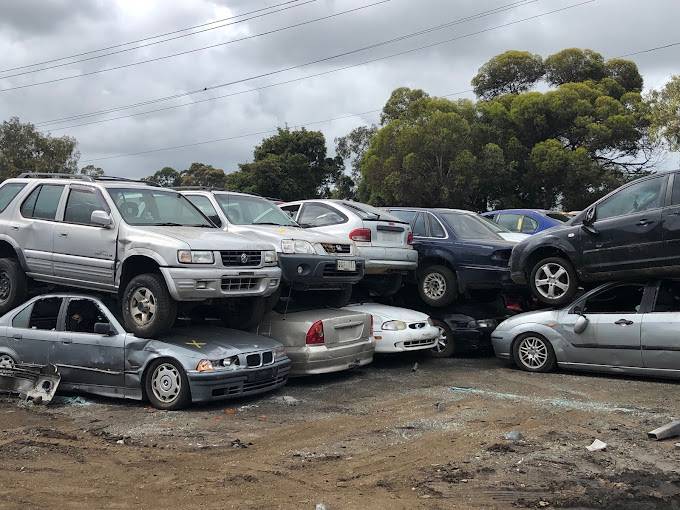Old cars contribute to pollution, waste, and resource depletion. Many vehicles sit unused, leaking harmful fluids and emitting toxic substances. Instead of leaving them to deteriorate, recycling provides a responsible way to minimize their environmental impact. This blog explores how old cars affect the environment and why recycling plays a crucial role in sustainability.
How Old Cars Harm the Environment
When old cars are left unused or improperly disposed of, they can cause several environmental issues.
- Soil and Water Contamination
Old vehicles contain fluids like oil, coolant, and brake fluid. When these leak into the ground, they contaminate soil and nearby water sources, affecting plant and animal life. - Air Pollution
Older cars often produce more carbon emissions than modern vehicles. Worn-out engines and outdated exhaust systems release higher levels of carbon monoxide, nitrogen oxides, and hydrocarbons, contributing to smog and climate change. - Excessive Waste in Landfills
Vehicles contain various non-biodegradable materials, including metal, plastic, and rubber. If not recycled, these materials end up in landfills, taking decades or even centuries to break down.
The Role of Car Recycling in Environmental Protection
Car recycling helps reduce waste, conserve natural resources, and limit pollution. Instead of letting old vehicles contribute to environmental damage, recycling ensures they are processed in an eco-friendly way.
1. Reducing Waste and Landfill Overflow
Recycling prevents millions of tons of metal, plastic, and rubber from filling landfills. Auto recyclers dismantle cars, extract useful materials, and reuse them in new vehicles or other industries.
2. Conserving Natural Resources
Mining and manufacturing metals require significant energy and raw materials. Recycling car parts reduces the demand for new metal production, preserving resources like iron ore, aluminum, and copper.
3. Lowering Carbon Emissions
Manufacturing new vehicle components produces a large carbon footprint. Recycling reduces the need for new production, cutting greenhouse gas emissions and reducing the impact on climate change.
What Happens to a Car During the Recycling Process?
Recycling a vehicle involves several steps to ensure maximum material recovery and minimal environmental harm.
1. Vehicle Inspection and Removal of Hazardous Fluids
- Cars are inspected to determine which parts can be reused.
- Fluids like oil, fuel, and coolant are safely drained to prevent leaks.
2. Dismantling and Salvaging Usable Parts
- Functional parts such as engines, batteries, and tires are removed for resale or reuse.
- Certain components are refurbished for use in other vehicles.
3. Crushing and Shredding
- After removing usable parts, the remaining car body is crushed and shredded.
- Shredded materials are sorted into metals, plastics, and other recyclable components.
4. Processing and Reuse
- Recovered metals are melted down and used in new products.
- Plastic and rubber materials are repurposed for various applications.
How Recycling Old Cars Supports Sustainability
Recycling vehicles plays a significant role in environmental sustainability.
- Reduces Energy Consumption
Recycling metal requires less energy than mining and refining raw materials. This lowers the overall energy demand in the automotive industry. - Promotes Circular Economy
Instead of discarding vehicles, recycling keeps materials in use for longer, reducing waste and supporting sustainable production. - Encourages Eco-Friendly Disposal Practices
Recycling programs promote responsible car disposal, reducing illegal dumping and its harmful effects on the environment.
Also visit for junk car removal: https://www.cashforcarssydney.com.au/
The Growing Demand for Scrap Metal and Its Benefits
The demand for recycled metal is increasing across various industries. Scrap metal from old cars is used in construction, manufacturing, and even electronics production.
- Cost-Effective Manufacturing
Recycled metal is cheaper than newly mined materials, making it a preferred choice for many industries. - Supports the Auto Industry
Many car manufacturers use recycled steel and aluminum in new vehicle production, reducing the need for fresh raw materials. - Decreases Mining Activities
As more scrap metal is reused, the demand for mining decreases, helping to preserve natural landscapes and reduce environmental degradation.
Cash for Cars Sydney: A Responsible Recycling Solution
Recycling an old car can be profitable through programs like scrap car yard Sydney. Many services offer instant payment for unwanted vehicles, ensuring they are recycled efficiently. By choosing this option, car owners can contribute to sustainability while earning money from their old vehicles.
Conclusion
Old cars can be hazardous to the environment if not disposed of properly. Recycling helps reduce pollution, conserve resources, and support a circular economy. With the growing demand for scrap metal, recycling vehicles is not only beneficial for the planet but also an opportunity to recover value from old cars. If you have an unwanted vehicle, consider recycling it through a reputable car removal service.
Find more insightful blogs here.





